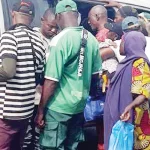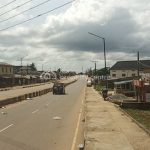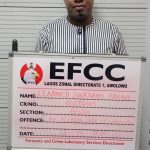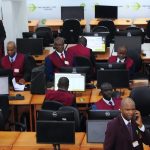General
FG Registers 46 million Vulnerable Nigerians
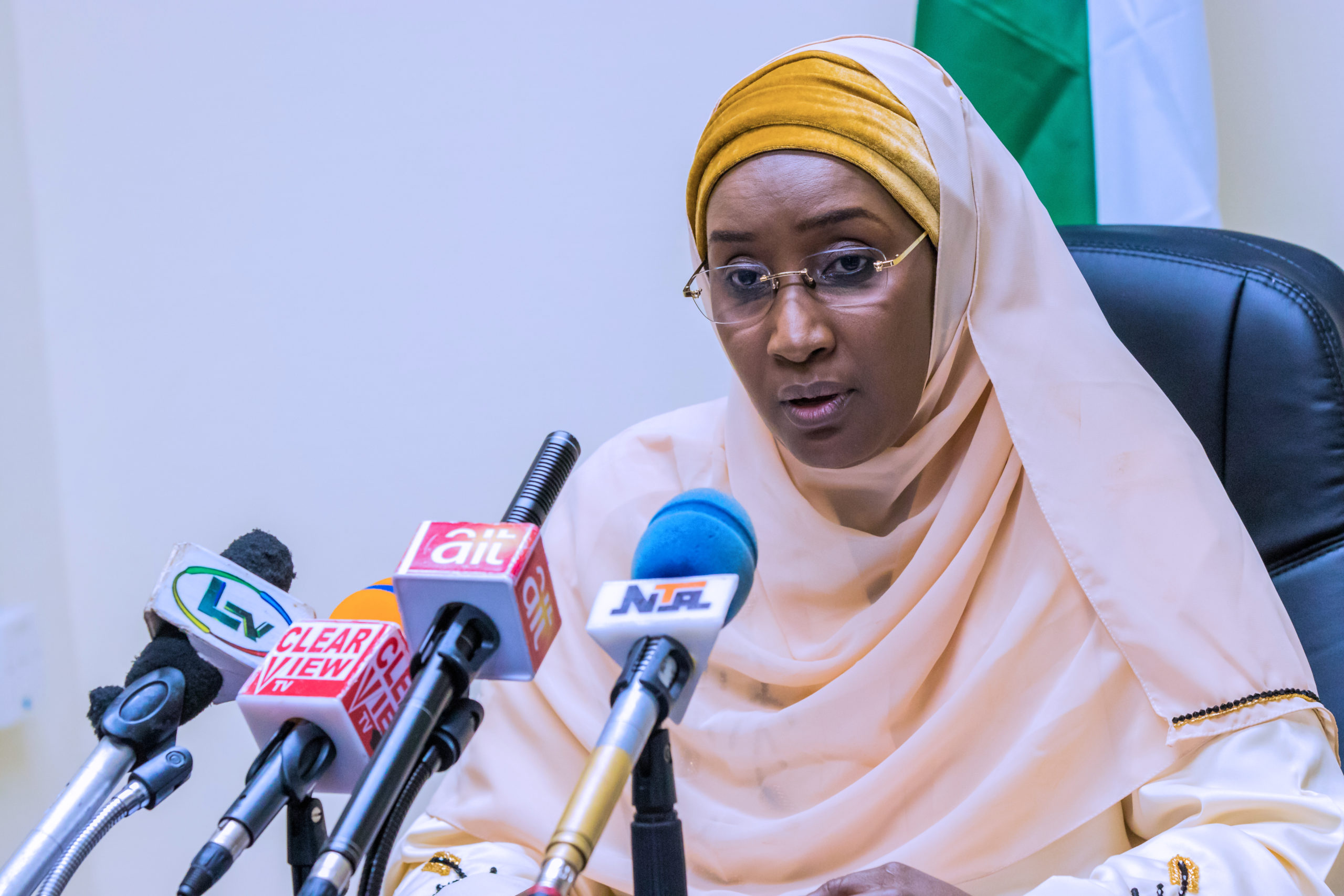
By Adedapo Adesanya
The federal government has said over 46 million vulnerable Nigerians have been captured on the national social register as of January 2022.
This was disclosed by the Minister of Humanitarian Affairs and Social Development Minister, Mrs Sadiya Umar Farouq in Abuja, explaining that as of December 2020, the federal government announced that 24.3 million Nigerians had been captured.
The figure was said to have increased to 30 million in March 2021.
Speaking at the event, the Minister said insecurity has contributed to the increase in the number of displaced persons in need of intervention, adding that the conditional cash transfer (CCT) programme was initiated to support the poor and vulnerable.
While commenting on IDP relocation, she said no displaced person will be returned to a community that is not safe.
“As part of the strategy to reach the most vulnerable in the society, the ministry continues to give N5,000 as part of the conditional cash transfer (CCT) programme to very poor and vulnerable citizens,” she said.
“The cash transfer beneficiaries are derived from the national social register which captures the poor and vulnerable citizens across the country. The national social register as at the end of January 2022 has captured over 46 million individuals.
“For an IDP to be relocated to their community, that community has to be safe for return. They have to be returned in safety and dignity; that is our guiding principle.
“We are doing this in collaboration with the Borno state government that has started relocating these IDPs. As mentioned in my presentation, we have built houses — 1,000 of them — and we have handed them over to the Borno government.
“No IDP will be returned to a community that is not safe for return. That is the first strategy and I am sure that is being followed. But there can be spontaneous attacks even when an area is declared safe for return. We might have issues here and there but the security agents are on top of it.
“The principle is to return them safely and in dignity. You have to provide the basic amenities when they return; you support them and empower them and that is being done through the ministry in partnership with the Borno state government.”
General
FG Dismantles Roadside Levies Nationwide
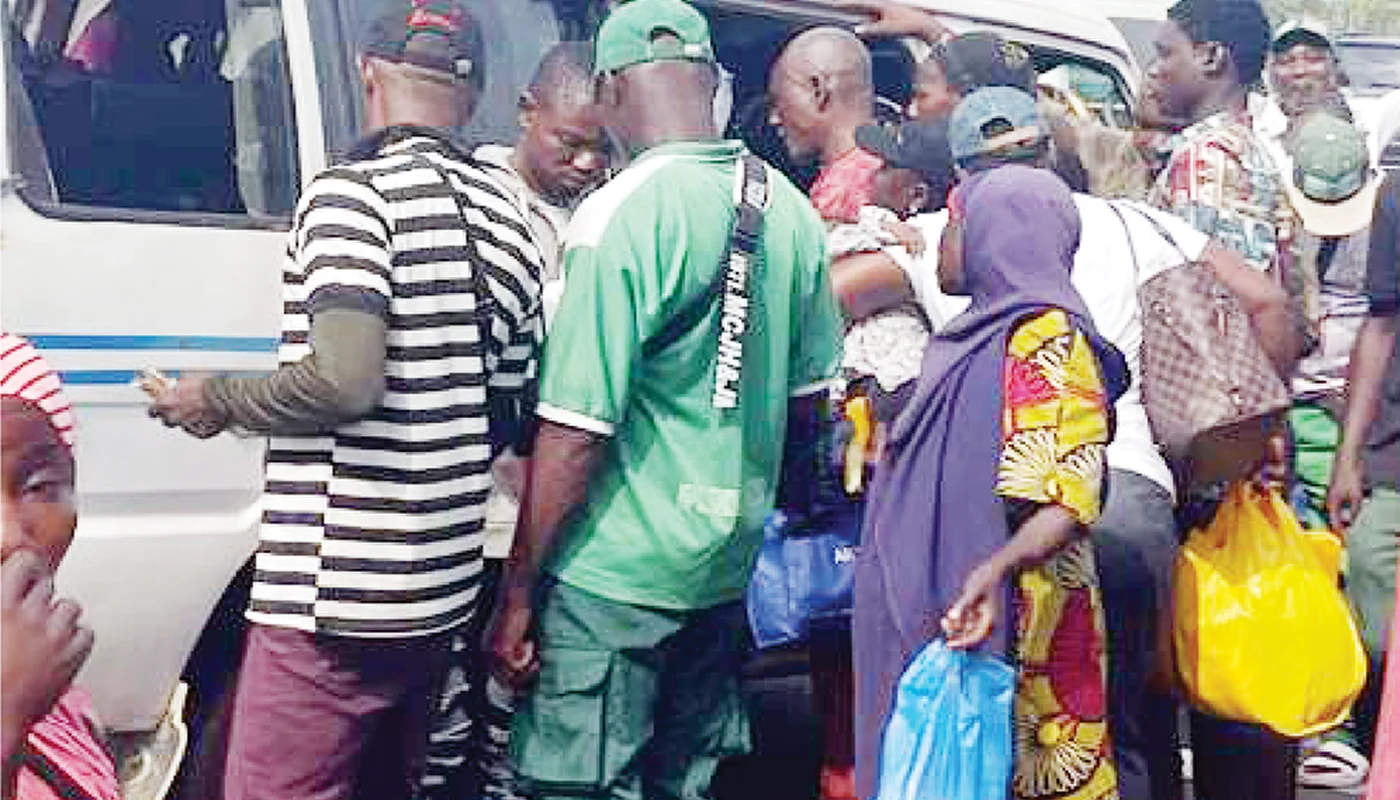
By Adedapo Adesanya
The federal government has banned the mounting of roadblocks for the collection of taxes and levies nationwide as part of a sweeping reform of the country’s tax administration system.
It also signed a new Presumptive Tax Framework (PTF) aimed at bringing millions of small and informal businesses into the formal economy through simplified tax processes.
According to the Executive Secretary of the Joint Revenue Board (JRB), Mr Olusegun Adesokan, the new framework expressly prohibits the use of roadblocks by tax officials to collect levies, which has been heavily criticised by businesses and transport operators.
“It also bans the mounting of roadblocks for the collection of taxes,” he said.
He further disclosed that the framework outlaws cash collection by tax authorities and promotes the use of technology-driven payment systems to ensure transparency and accountability.
“Apart from encouraging the use of technology for payment of taxes and cash collection, it bans all forms of cash collection by tax authorities,” Mr Adesokan added.
The Minister of Finance and Coordinating Minister of the Economy, Mr Wale Edun, described the PTF as a key component of the tax reform programme under the administration of Bola Ahmed Tinubu.
Mr Edun said the framework is designed to expand the nation’s tax base while protecting small businesses from excessive burden.
According to him, the presumptive tax system will rely on clear indicators such as business category and turnover levels rather than complex accounting requirements.
“The objective of presumptive taxation is not to overburden small businesses, but to provide a fair, simple and predictable framework for tax compliance,” he said.
He stressed that the government’s fiscal strategy is anchored on widening the tax net instead of increasing tax rates.
“Our fiscal strategy is anchored on expanding the tax base rather than increasing tax rates. Inclusion drives sustainability,” the minister said.
Mr Edun noted that micro and small enterprises form the backbone of Nigeria’s economy and that the framework seeks to reduce compliance costs while creating a structured pathway for them to transition into the formal sector.
He added that the regulations would provide clarity for tax authorities across the country and protect taxpayers from arbitrary assessments.
“These regulations provide clarity to tax authorities and protect taxpayers from arbitrary assessments. The system will be transparent, rules-based and nationally consistent,” he said.
He also said that strengthening non-oil revenue through a broader tax base would enhance the government’s capacity to fund infrastructure, security, social investment and economic growth.
The minister explained that the regulations were developed in collaboration with the JRB to ensure alignment between federal and state tax administrations.
Earlier, Mr Adesokan described the framework as a major step towards making the tax system fairer for ordinary Nigerians.
He said the reform reflects President Tinubu’s commitment to ensuring that the tax system supports economic growth rather than placing pressure on struggling citizens.
“This revolution is another demonstration of President Bola Ahmed Tinubu’s commitment to taxing prosperity and not poverty,” he said.
Mr Adesokan disclosed that businesses with an annual turnover of up to N50 million would be exempted from tax under the new arrangement.
“It ensures that our nano and small businesses with an annual turnover of 50 million naira are exempted from tax,” he said.
He explained that the exemption would allow small entrepreneurs to retain capital for growth before eventually entering the tax system, while other informal businesses above the threshold would be subject to a simplified turnover-based tax rate.
General
Ayobo Ipaja LCDA Declares Zero-Tolerance for Indiscriminate Waste Disposal
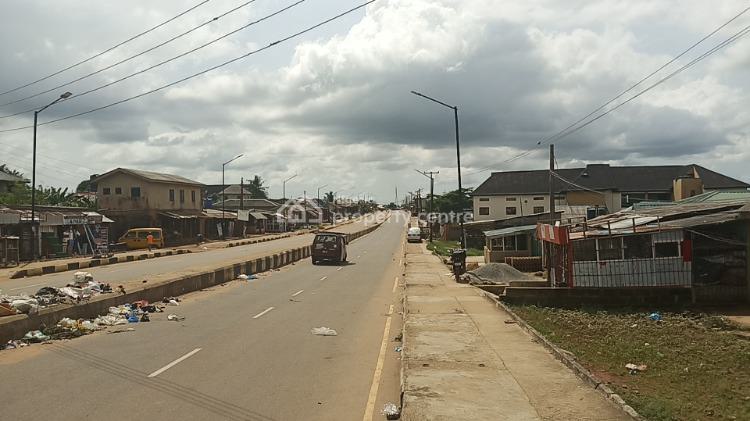
By Dipo Olowookere
The chairman of the Ayobo-Ipaja Local Council Development Area (LCDA), Mr Agbaje Lukmon Abiodun, has taken a bold and decisive step towards restoring environmental order in the council.
He has deployed smart and space-saving cleaning equipment to clear heaps of accumulated waste along the road median on the Camp Davies/Isefun Road, Ayobo.
The council chief expressed optimism that the intensive clean-up operation would directly tackle the long-standing issue of indiscriminate refuse dumping in the area.
He disclosed that he took this step because indiscriminate waste disposal poses serious environmental and safety risks to residents and commuters within the axis.
At the clean-up exercise, the Head of Environmental Development, Mrs Babajide Racheal, who represented the chairman, reiterated his administration’s zero-tolerance stance on environmental violations, calling on residents to take collective responsibility by properly disposing of waste through approved Private Sector Participation (PSP) operators.
“We will no longer tolerate actions that endanger public health and degrade our environment. Together, we must build a cleaner, safer, and healthier community,” Mr Agbaje stated.
As part of ongoing sanitation reforms, the council has strengthened monitoring mechanisms and enforcement strategies, including strict penalties for defaulters.
He reaffirmed his dedication to preserving the cleanliness and aesthetic appeal of Camp Davies/Isefun Road and the surrounding communities.
This clean-up campaign reflects the administration’s broader commitment to sustainable environmental management, improved infrastructure, and enhanced public health standards across the LCDA.
General
Reprieve for Nigerians as NERC Orders DisCos to Refund N20.33bn in Meter Charges

By Adedapo Adesanya
The Nigerian Electricity Regulatory Commission (NERC) has ordered electricity distribution companies to refund a total of N20.33 billion in outstanding meter costs.
This was from a judgment contained in Order No: NERC/2026/025, which amends the previous 2023 order, was signed by the NERC Chairman, Mr Musiliu Oseni, and the Commissioner, Legal, Licensing & Compliance at NERC, Mr Dafe Akpeneye, on February 27, 2026.
According to the new order, DisCos are to recover and fully disburse the fund to affected customers over 12 months from March 1, 2026.
Under the Meter Asset Provider framework (MAP) scheme, customers pay for meters and are refunded by their DisCos through energy credits.
However, the commission noted that the level of refunds had been very slow over the years, necessitating a new order.
NERC stated that, as of December 31, 2025, DisCos had failed to reimburse customers for meters procured under the MAP framework, leaving an outstanding N20.33 billion.
The order is intended to prevent repeated delays in reimbursements, optimise customer notification, and strengthen sector credibility and confidence.
“In February 2026, the commission reviewed the level of compliance of DisCos with the expected reimbursement to customers who have paid for meters under the MAP framework.
According to the new order, DisCos have an outstanding amount of N20.33 billion to reimburse customers for meters procured under the MAP framework as of December 31, 2025.
The electricity market regulator stated that all reimbursements to customers for meters procured under the MAP framework would be fully automated on customer accounts, saying, “DisCos shall ensure that the total cost of a MAP meter is recognised as credit on the customer’s account upon activation of the meter and disbursed automatically as monthly credits over the approved amortisation period.”
DisCos were also instructed that meter reimbursement credits cannot be offset against customer legacy debt.
“DisCos shall not offset meter reimbursement credits against customer legacy debts; the items must be treated separately,” the order stated.
For prepaid customers, DisCos must automatically generate monthly tokens representing the reimbursement, while for postpaid customers, the reimbursement must appear as a distinct credit on their bills.
NERC said, “For customers with prepaid meters, no later than the 4th day of every month, the DisCo’s billing system will automatically generate a token with an energy value equivalent to the monthly reimbursement which the customer is due to receive over the 120-month amortisation period based on the prevailing tariff for the customer.
“For post-paid customers, the monthly reimbursement of the cost of a MAP meter shall appear as a distinct credit line item which is expected to be subtracted from the customer’s total payable for the month.”
NERC also mandated monthly reporting and a dedicated complaints channel for affected customers.
“All DisCos shall file monthly reports with the Commission detailing the total monetary value of the reimbursement to customers through energy credit, in accordance with the template approved by the Commission.
“All DisCos shall establish a dedicated email address for the receipt of complaints from customers who have not received MAP meter cost reimbursements. Details of such complaints, including the status of their resolution, shall form part of the monthly compliance reports submitted to the commission,” it said.
To recover the N20.33 billion arrears, the firms are to accelerate repayment over 12 months. The order noted that prepaid customers will receive two tokens per month, while postpaid customers will see two reimbursement line items on their bills.
-

 Feature/OPED6 years ago
Feature/OPED6 years agoDavos was Different this year
-
Travel/Tourism10 years ago
Lagos Seals Western Lodge Hotel In Ikorodu
-

 Showbiz3 years ago
Showbiz3 years agoEstranged Lover Releases Videos of Empress Njamah Bathing
-

 Banking8 years ago
Banking8 years agoSort Codes of GTBank Branches in Nigeria
-

 Economy3 years ago
Economy3 years agoSubsidy Removal: CNG at N130 Per Litre Cheaper Than Petrol—IPMAN
-

 Banking3 years ago
Banking3 years agoSort Codes of UBA Branches in Nigeria
-

 Banking3 years ago
Banking3 years agoFirst Bank Announces Planned Downtime
-

 Sports3 years ago
Sports3 years agoHighest Paid Nigerian Footballer – How Much Do Nigerian Footballers Earn




